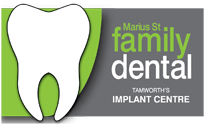Full check-up
To prepare for your first appointment here are some things you can do
- Fill out this general medical history form (attached at bottom) and email (how are we going to do this, are going to type the email here or refer them to the contact us form or?) it to us or print it out and bring it in. Alternatively you can arrive 5 minutes before your appointment time to fill one in in the patient lounge
- If you are on medications, make sure you know the name of your medication, dosage and the reason you are taking it
- If you have any medical conditions, it can be useful to bring in test results from the doctor so we can put them into our record. For example, if you have diabetes, your most recent HbA1c result is useful to give us an indication of your glucose control. If you are immunocompromised and have a full blood count result, this is useful in helping us determine if you need antibiotics before invasive treatments
- Take some time to think about what is important to you in regards to your smile. Having an idea of what you want will help you communicate this to us, so we can better tailor your plan to suit
Ask yourself these questions:
- Do I wake up feeling unrested and feel tired during the day?
- Do I get muscle pain around my jaw or jaw joint pain?
- Do I wake up with a headache or get headaches often?
- Do I snore?
If you answered yes to any of these questions, it may be worthwhile to answer this questionare (i need to create a new version of this and give it to you to attach) as a screening. It gives us a lot more information to work with and speeds up your appointment. If you email or fax it to us, we will be able to read it before you arrive and not use the appointment time.
This appointment is very much about information gathering and communication.
We will do a full assessment which includes:
- Screening for jaw joint issues
- Screening for muscle dysfunction of the muscles of mastication (chewing)
- Oral cancer screen/checking that all of the soft tissues inside your mouth are healthy
- Screen for periodontal disease or gum issues
- Checking your teeth for: decay, fractures, cracks, wear, root exposure, mobility
- Charting the current condition of your teeth including all fillings
This usually will include taking x-rays. The x-rays we take will be dependent on your particular needs, there is no ‘one size fits all’ routine, however we will let you know before we take them, as well as explain why we are taking them.
After the assessment is done, depending on what we find we may need to get further information. Once we have gotten everything we need to be able to form a diagnosis, we will take the time to explain everything to you and then go through your options. We give ourselves enough time to listen to you and make sure we find the right treatment plan for your budget, needs and wants.
We explain what is urgent and needs to be done as soon as possible, what are things that need to be addressed in the short-medium term and then what are things you can start to plan for over the coming years (long-term). This is as we want you to be able to plan for treatment and not be caught off-guard.
We then print this plan out for you with all the item codes and costs. If you are in a health fund, you will be able to take this to them and they can tell you exactly how much you will get back. You can use this to know what each appointment will involve and what each step is along the way.
- Your toothbrush
- Any dentures or appliances such as splints
- Health fund card
- List of medications and any medical documents, as well as name and contact details of your medical practitioner so we can have it on file
- If you have any existing conditions such as asthma or angina, make sure you bring along any medication you may need such as your puffer, nitroglycerin, etc.
- If you have diabetes, make sure you eat healthy meals that day and don't skip any meals.
